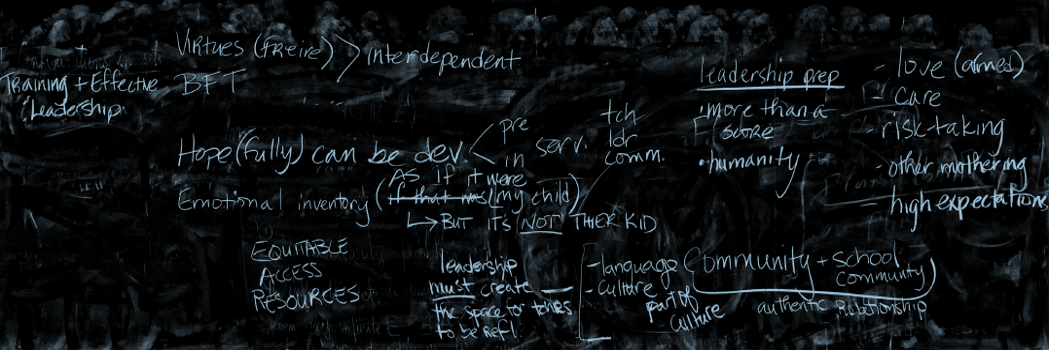I connect deeply with the story Sonya Horsford tells of her intellectual journey with the question of integration. I had a similar experience as a first year doctoral student and now find myself both deeply critical of most integration discourse as well as fundamentally uncertain as to what sort of structural role government of any scale (city/state/federal) ought to play in the administration/management/provision of education. When I read the phrase “education is the practice of freedom” in Horsford’s piece in Education Weekly I had to pause to take in the magnitude of my agreement with the assertion.
True education is the practice of freedom but what happens in schools is something else all together. I am enrolled in Decolonizing Education this semester and we’ve recently been engaging with Sylvia Wynter’s scholarship (and work building upon it) pertaining to the narrow concept of being human emerging from the epistemological cradle of “Western thought”. We read a piece by Desai and Sanya (2016) that called for decolonial pedagogies that would make space for and legitimize multiple ways of being human so as to get out from under the thumb of racism/cisheteronormativity/sexism/etc. When Horsford asked it could even be possible to create a shared vision of education in the US, I immediately thought about the epistemological faultlines that exist in society. Developing such a shared vision requires deep exchanges and real communication. This is bigger than the political, this is foundational philosophy.
What the United States has gotten away with calling a public education system is actually a labor funnelling system. It is a system designed to support an economic agenda that predated it and is dependent upon it. The labor funneling system takes shape around the values and priorities animating our economic system. The centrality of racial capitalism in the movements of our economy (and the government that nurtures it) means that it will always rear its head in schools. Like Horsford, “I continue to wrestle with what constitutes the best type of learning environment for young people in a society that does not value their intellect, culture, or humanity” and I don’t trust our (white settler-colonial) government(s) to provide an answer.
To say that integration is a solution rests on so many assumptions. I appreciated Horsford’s critique of integration and had a long nod after reading her say that she “[questions] how we as a nation make assumptions about the racial composition of our schools, which have implications for how integration is defined and what problem it aims to solve…And whose school integration is it?” In speaking about contemporary white integration-evangelists, Horsford notes that they “continue to advance a vision of equity and diversity grounded in the belief that if the Brown decision declared separate schools inherently unequal, the way to address the problem of educational inequality is through racial integration.” This is particularly significant in light of the interest convergence analysis of the Brown decisions. Seeking moral legitimacy during the Cold War, the United States was under immense pressure to appear to respond to the grievous violence and injustice that had defined relations between Black and White people from the country’s inception. It would seem that integration has always been a bit of a vanity project for many.
But what good is integration if White folks keep white-folking? Like DuBois said “We shall get a finer, better balance of spirit; an infinitely more capable and rounded personality by putting children in schools where they are wanted, and where they are happy and inspired, than in thrusting them into hells where they are ridiculed and hated.”
When Horsford asked “does the Black child need integrated schools?” I just wrote: No. The Black child does not need integrated schools. What good is integration in the presence of racial animosity and no institutional commitment to interrupt and redress racial harm or capacity to fully see, affirm, care for, and educate Black children? I’ve been following many of the @blackatXYZprivateschool accounts on instagram and it is a catalog of (largely emotional) violence enacted against Black children who were wedged into PWIs in the name of integration/diversity/inclusion. With every story I read, the more I realize how deep my rageful critique of organizations like Prep for Prep go. This is a much longer rant but the tl/dr of it is “If board members and donors were as invested in dismantling structural inequality as they were in putting Black and Brown kids in private school we might actually get somewhere.”



